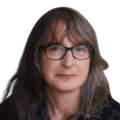A novel and writer transformative programme
This immersive, deep-dive course for experienced writers values serious play as the engine of art, and allows space for experimentation and innovation as you progress a novel under the guidance of leading novelists and creative educators.
Over eight months, get to know your writing process from the inside out, rethinking approaches and challenging expectations. You’ll learn to ask the right questions to move your novel forward, allowing your tutor to focus on what you really need to know in order to refine and recalibrate your work.
There is space for freedom and wildness in this course – we encourage participants to take creative risks while working within a tight structure that leads to measurable progress. We put peer exchange at the heart of the learning because it is so effective at developing writerly intelligence, so week by week you’ll read and learn from a small group of fellow writers. We hope you will experience a gradual process of iterative transformation in your ideas and writing voice, as you develop a more bold and confident practice as a novelist.
There are eight monthly sessions divided into four weekly parts, running as follows:
- Week 1 – Creative Playground
Activities to stimulate your creativity, challenge habits, build writing muscles and inject fun into the process. After completing short practical writing tasks, share thoughts on what you discovered about yourself as a writer and what you can take into your novel. The tutor reflects on your discoveries and breakthroughs. - Weeks 2 and 3 – Focused Writing Time
Two weeks to progress your novel. You could produce new work or build on ideas developed through the playground week – for example, you might rework the start of your novel based on a new voice you discovered in the play. Share 2-6,000 words from your novel each month for peer review. We’ll also learn from a short experimental novel each month. Your tutor hosts a live group Zoom call during this time, and there are one-to-one tutorials at set points. - Week 4 – Close-reading Week
Read extracts of your peers’ developing novels and offer responses. The aim is to hone your self-editing skills and use them to reflect on your own work-in-progress. This close work is at least as important to the writerly development of you, the reader as it is to the writer you are critiquing.
You’ll be given a free one-year digital subscription to Granta magazine, as well as access to curated extracts from Granta’s award-winning books, and the magazine, podcast and video archive. Throughout the course, there is regular monthly insight from guest authors and Granta staff through live and pre-recorded Zoom calls.
You’ll finish the course with at least 20-30,000 words of your novel, greater proficiency and confidence in yourself as a writer and editor, plus a new approach to your writing practice that makes you a more self-reliant and original novelist with finishing power beyond this project.
This course requires 10-12 hours work per week. Entry is by application to ensure you get the most out of the course.
Course completion opens up our Alumni Space, which provides ongoing access to industry professionals, including authors, Granta editors and literary agents.



























